Common CV Mistakes and How to Avoid Them
Home » Common CV Mistakes and How to Avoid Them
Common CV Mistakes and How to Avoid Them
Home » Common CV Mistakes and How to Avoid Them
Home » Common CV Mistakes and How to Avoid Them
Home » Common CV Mistakes and How to Avoid Them
Hospitals don’t hire CVs; they hire clinicians. However, the quality of your CV can be what either gets you in the door for an interview or what closes the door. And we know that you certainly can’t get the job if you don’t get the interview.
To help you make the best impression possible, we’ve identified the following common mistakes and how to avoid them:
A good rule of thumb is to have at least a couple of other people review your CV. Suppose you can hire a professional copy editor; the more eyes, the better. You can find well-qualified people at affordable prices on freelance marketplace sites such as UpWord and Fiverr.
Akin to not looking for grammatical errors is the failure to format your document correctly. There are many templates to help you format your CV. Here are two sample templates we like the best:
Also, keep these formatting pointers in mind:
Residents Medical, a site that helps residents navigate the path to placement, said that 70 percent of Program Directors listed gaps in medical education as an essential factor when choosing who to interview for residency. It went on to say that applicants with significant gaps in their CVs will not even have the chance to prove themselves.
“Don’t make the mistake of letting gaps in your medical education upset your chances at residency,” the site advised. “Whether you are currently applying to the Match or are planning to apply in the upcoming years, make sure your CV is consistent and be smart in your preparations.”
Experts say that a two-page CV is standard. As a resident, you shouldn’t need to go beyond that length, as doing so may lend the impression that you can’t distinguish what’s important or that you are attempting to cram everything in to look more experienced.
A Reuters Health article cites two studies that found many residents lie on their CVs. Honest mistakes are one thing, but lying on a CV is something altogether. It’s a matter of integrity and credibility. Don’t risk putting your career in jeopardy due to a lie.
Don’t think for a minute that one CV will fit every situation. Each is unique, so you should tailor the CV to the role you are applying for. That’s not brain surgery either; look at the specific job requirement and work from there.
Don’t make it hard for a recruiter or employer to contact you. Be sure your contact information is up-to-date.
Listing references is not necessarily encouraged. You don’t need to say, “References available upon request.” If a recruiter or employer wants references, they will ask for them.
While cover letters are not required, they might be an item you consider including. Cover letters have a unique purpose: breaking the ice. It can be your opportunity to make an excellent first impression. It doesn’t have to be lengthy – three-quarters of a page is sufficient.
According to the blog Physician Career Planning, if you have a cover letter, you should include the following information:
Visit our blog for more tips on embracing your transition from residency.
Sign up for our newsletter to receive the latest updates and exclusive content straight to your inbox.

A physician-led team of clinical specialists in emergency, hospital, and critical care medicine, supporting local clinical practices with national resources to deliver high-quality patient care in the communities we serve.
Corporate Phone: (800) 893-9698
Copyright © 2025. All rights reserved.
Please visit SCP Health’s Insurance Request Portal to submit requests related to medical malpractice liability insurance such as coverage verifications, claims history reports, and certificates of insurance. If you experience issues with the portal submission or have a question about the process, please reach out SCP Health’s Risk Management, Safety and Insurance Department at RM@scphealth.com or 337-609-1250.
By clicking the “Submit” button, you are agreeing to the SCP Heath Terms of Use and Privacy Policy
By clicking the “Submit” button, you are agreeing to the SCP Heath Terms of Use and Privacy Policy
By clicking the “Submit” button, you are agreeing to the SCP Heath Terms of Use and Privacy Policy
By clicking the “Submit” button, you are agreeing to the SCP Heath Terms of Use and Privacy Policy
By clicking the “Submit” button, you are agreeing to the SCP Heath Terms of Use and Privacy Policy
By clicking the “Submit” button, you are agreeing to the SCP Heath Terms of Use and Privacy Policy
By clicking the “Submit” button, you are agreeing to the SCP Heath Terms of Use and Privacy Policy
By clicking the “Submit” button, you are agreeing to the SCP Heath Terms of Use and Privacy Policy
By clicking the “Submit” button, you are agreeing to the SCP Heath Terms of Use and Privacy Policy
By clicking the “Submit” button, you are agreeing to the SCP Heath Terms of Use and Privacy Policy
Please provide your contact information. An SCP representative will contact you accordingly.